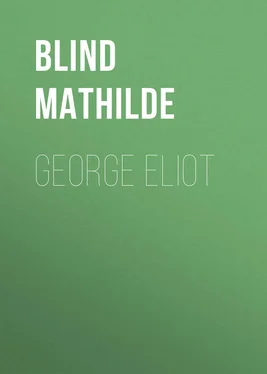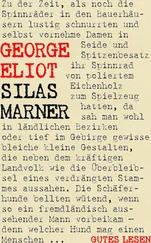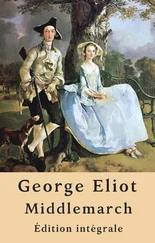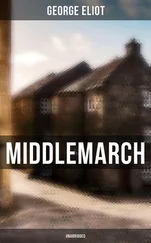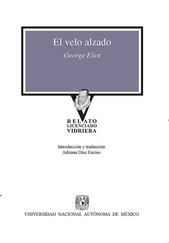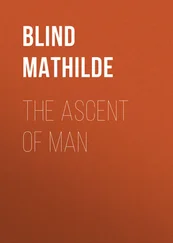Mathilde Blind - George Eliot
Здесь есть возможность читать онлайн «Mathilde Blind - George Eliot» — ознакомительный отрывок электронной книги совершенно бесплатно, а после прочтения отрывка купить полную версию. В некоторых случаях можно слушать аудио, скачать через торрент в формате fb2 и присутствует краткое содержание. ISBN: , Жанр: foreign_antique, foreign_prose, Биографии и Мемуары, на английском языке. Описание произведения, (предисловие) а так же отзывы посетителей доступны на портале библиотеки ЛибКат.
- Название:George Eliot
- Автор:
- Жанр:
- Год:неизвестен
- ISBN:http://www.gutenberg.org/ebooks/36847
- Рейтинг книги:3 / 5. Голосов: 1
-
Избранное:Добавить в избранное
- Отзывы:
-
Ваша оценка:
- 60
- 1
- 2
- 3
- 4
- 5
George Eliot: краткое содержание, описание и аннотация
Предлагаем к чтению аннотацию, описание, краткое содержание или предисловие (зависит от того, что написал сам автор книги «George Eliot»). Если вы не нашли необходимую информацию о книге — напишите в комментариях, мы постараемся отыскать её.
George Eliot — читать онлайн ознакомительный отрывок
Ниже представлен текст книги, разбитый по страницам. Система сохранения места последней прочитанной страницы, позволяет с удобством читать онлайн бесплатно книгу «George Eliot», без необходимости каждый раз заново искать на чём Вы остановились. Поставьте закладку, и сможете в любой момент перейти на страницу, на которой закончили чтение.
Интервал:
Закладка:
The circle to which Miss Evans now happened to be introduced was in every sense congenial and inspiriting. Mr. Bray, his wife, and his sister-in-law were a trio more like some delightful characters in a first-rate novel than the sober inhabitants of a Warwickshire country town. Living in a house beautifully situated on the outskirts of Coventry, they used to spend their lives in philosophical speculations, philanthropy, and pleasant social hospitality, joining to the ease and laisser aller of continental manners a thoroughly English geniality and trustworthiness.
Mr. Bray was a wealthy ribbon manufacturer, but had become engrossed from an early age in religious and metaphysical speculation as well as in political and social questions. Beginning to inquire into the dogmas which formed the basis of his belief, he found, on careful investigation, that they did not stand, in his opinion, the test of reason. His arguments set his brother-in-law, Mr. Charles C. Hennell, a Unitarian, to examine afresh and go carefully over the whole ground of popular theology, the consequence of this close study being the 'Inquiry concerning the Origin of Christianity,' a work which attracted a good deal of attention when it appeared, and was translated into German at the instance of David Strauss. It was published in 1838, a few years after the appearance of the 'Life of Jesus.' In its critical examination of the miracles, and in the sifting of mythological from historical elements in the Gospels it bears considerable analogy to Strauss's great work, although strictly based on independent studies, being originally nothing more than an attempt to solve the doubts of a small set of friends. Their doubts were solved, but not in the manner originally anticipated.
Mrs. Bray, of an essentially religious nature, shared the opinions of her husband and brother, and without conforming to the external rites and ceremonies of a creed, led a life of saintly purity and self-devotion. The exquisite beauty of her moral nature not only attracted Marian to this truly amiable woman, but filled her with reverence, and the friendship then commenced was only ended by death.
In Miss Sara Hennell, Marian Evans found another congenial companion who became as a sister to her. This singular being, in most respects such a contrast to her sister, high-strung, nervous, excitable, importing all the ardour of feeling into a life of austere thought, seemed in a manner mentally to totter under the weight of her own immense metaphysical speculations. A casual acquaintance of these two young ladies might perhaps have predicted that Miss Hennell was the one destined to achieve fame in the future, and she certainly must have been an extraordinary mental stimulus to her young friend Marian. These gifted sisters, two of a family, all the members of which were remarkable, by some are identified as the originals of the delightful Meyrick household in 'Daniel Deronda.' Each member of this genial group was already, or ultimately became, an author of more or less repute. A reviewer in the 'Westminster,' writing of Mr. Bray's philosophical publications, some years ago, said: "If he would reduce his many works to one containing nothing unessential, he would doubtless obtain that high place among the philosophers of our country to which his powers of thought entitle him." His most popular book, called 'The Education of the Feelings,' intended for use in secular schools, deals with the laws of morality practically applied. Mrs. Bray's writings, on the same order of subjects, are still further simplified for the understanding of children. She is the authoress of 'Physiology for Schools,' 'The British Empire,' 'Elements of Morality,' etc. Her 'Duty to Animals' has become a class book in the schools of the midland counties, and she was one of the first among those noble-hearted men and women who have endeavoured to introduce a greater degree of humanity into our treatment of animals.
George Eliot, writing to Mrs. Bray in March 1873 on this very subject, says:
"A very good, as well as very rich, woman, Mrs. S – , has founded a model school at Naples, and has the sympathy of the best Italians in her educational efforts. Of course a chief point in trying to improve the Italians is to teach them kindness to animals, and a friend of Mrs. S – has confided to her a small sum of money – fifty pounds, I think – to be applied to the translation and publication of some good books for young people, which would be likely to rouse in them a sympathy with dumb creatures.
"Will you kindly help me in the effort to further Mrs. S – 's good work by sending me a copy of your book on animals, and also by telling me the periodical in which the parts of the book first appeared, as well as the titles of any other works which you think would be worth mentioning for the purpose in question?
"Mrs. S – (as indeed you may probably know) is the widow of a German merchant of Manchester, as rich as many such merchants are, and as benevolent as only the choicest few. She knows all sorts of good work for the world, and is known by most of the workers. It struck me, while she was speaking of this need of a book to translate, that you had done the very thing."
A few days later the following highly interesting letter came from the same source:
"Many thanks for the helpful things you have sent me. 'The Wounded Bird' is charming. But now something very much larger of the same kind must be written, and you are the person to write it – something that will bring the emotions, sufferings, and possible consolations of the dear brutes vividly home to the imaginations of children: fitted for children of all countries, as Reineke Fuchs is comprehensible to all nations. A rough notion came to me the other day of supposing a house of refuge, not only for dogs, but for all distressed animals. The keeper of this refuge understands the language of the brutes, which includes differences of dialect not hindering communication even between birds, and dogs, by the help of some Ulysses among them who is versed in the various tongues, and puts in the needed explanations. Said keeper overhears his refugees solacing their evenings by telling the story of their experiences, and finally acts as editor of their autobiographies. I imagine my long-loved fellow-creature, the ugly dog, telling the sorrows and the tender emotions of gratitude which have wrought him into a sensitive soul. The donkey is another cosmopolitan sufferer, and a greater martyr than Saint Lawrence. If we only knew what fine motives he has for his meek endurance, and how he loves a friend who will scratch his nose!
"All this is not worth anything except to make you feel how much better a plan you can think of.
"Only you must positively write this book which everybody wants – this book which will do justice to the share our 'worthy fellow-labourers' have had in the groaning and travailing of the world towards the birth of the right and fair.
"But you must not do it without the 'sustenance of labour' – I don't say 'pay,' since there is no pay for good work. Let Mr. … be blest with the blessing of the unscrupulous. I want to contribute something towards helping the brutes, and helping the children, especially the southern children, to be good to the creatures who are continually at their mercy. I can't write the needed book myself, but I feel sure that you can, and that you will not refuse the duty."
Mrs. Bray's answer to this humorous suggestion may be gathered from George Eliot's amiable reply:
"I see at once that you must be right about the necessity for being simple and literal. In fact I have ridiculous impulses in teaching children, and always make the horizon too wide.
"'The Wounded Bird' is perfect of its kind, and that kind is the best for a larger work. You yourself see clearly that it is an exceptional case for any one to be able to write books for children without putting in them false morality disguised as devout religion. And you are one of the exceptional cases. I am quite sure, from what you have done, that you can do the thing which is still wanted to be done. As to imagination, 'The Wounded Bird' is full of imagination."
Читать дальшеИнтервал:
Закладка:
Похожие книги на «George Eliot»
Представляем Вашему вниманию похожие книги на «George Eliot» списком для выбора. Мы отобрали схожую по названию и смыслу литературу в надежде предоставить читателям больше вариантов отыскать новые, интересные, ещё непрочитанные произведения.
Обсуждение, отзывы о книге «George Eliot» и просто собственные мнения читателей. Оставьте ваши комментарии, напишите, что Вы думаете о произведении, его смысле или главных героях. Укажите что конкретно понравилось, а что нет, и почему Вы так считаете.
